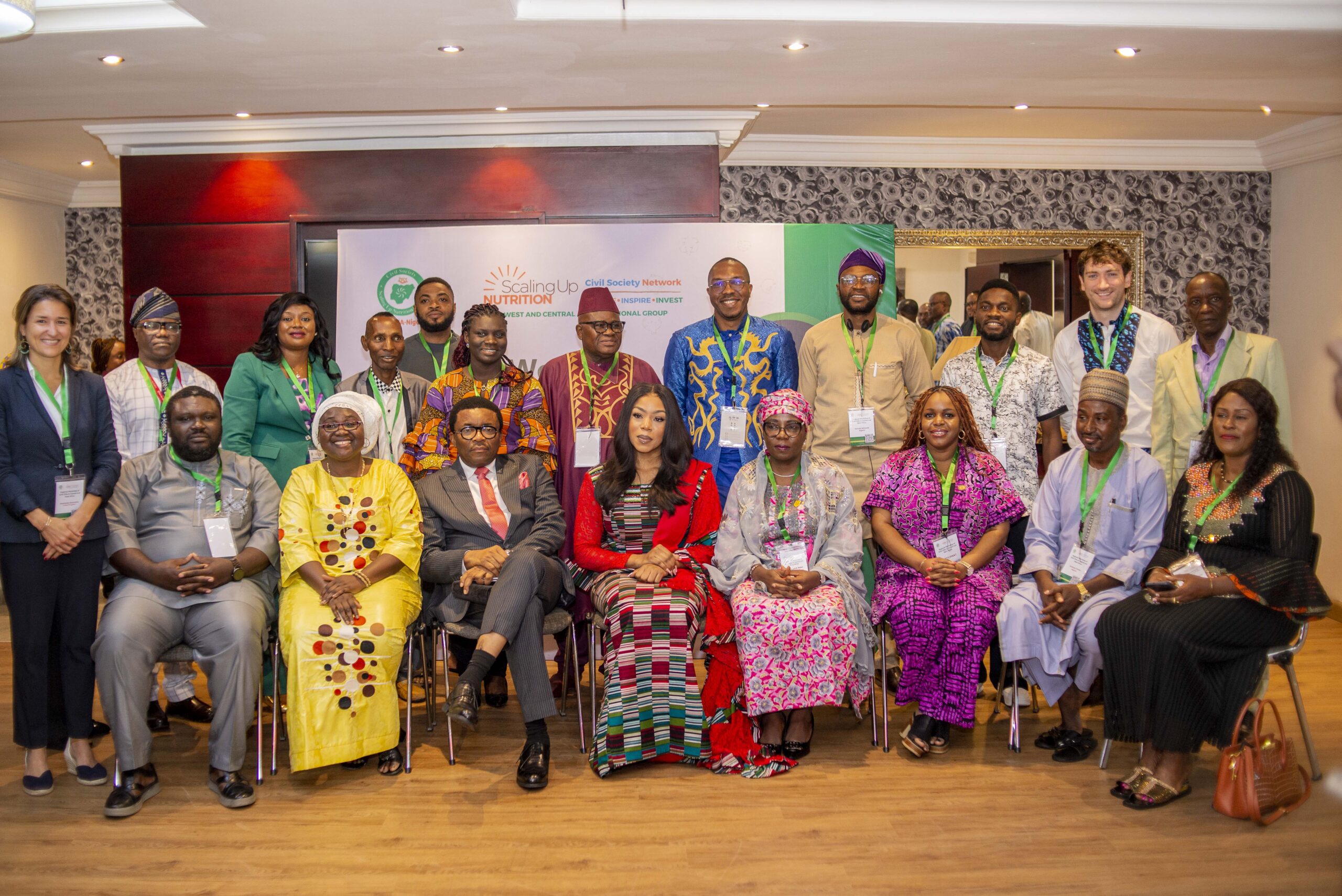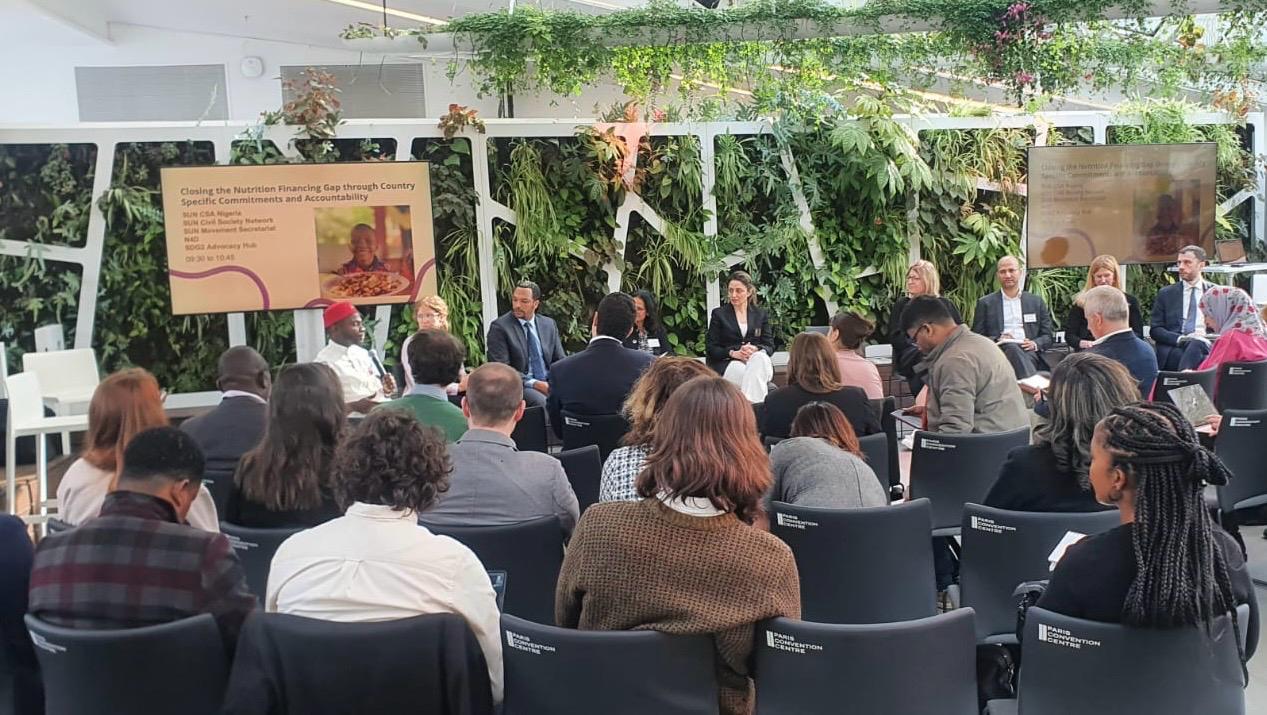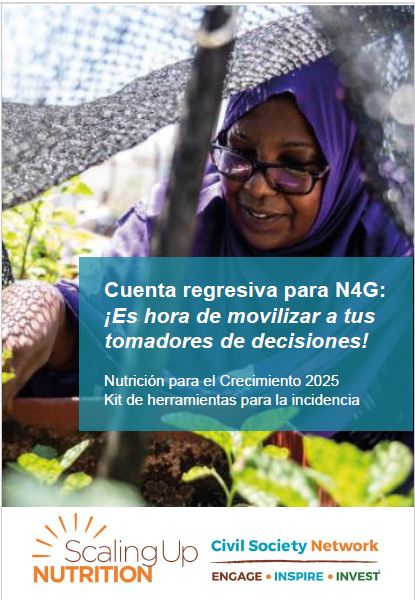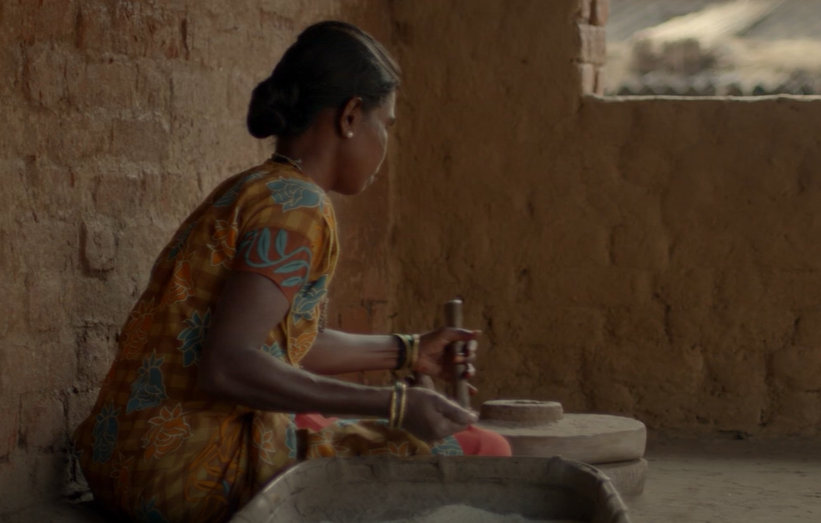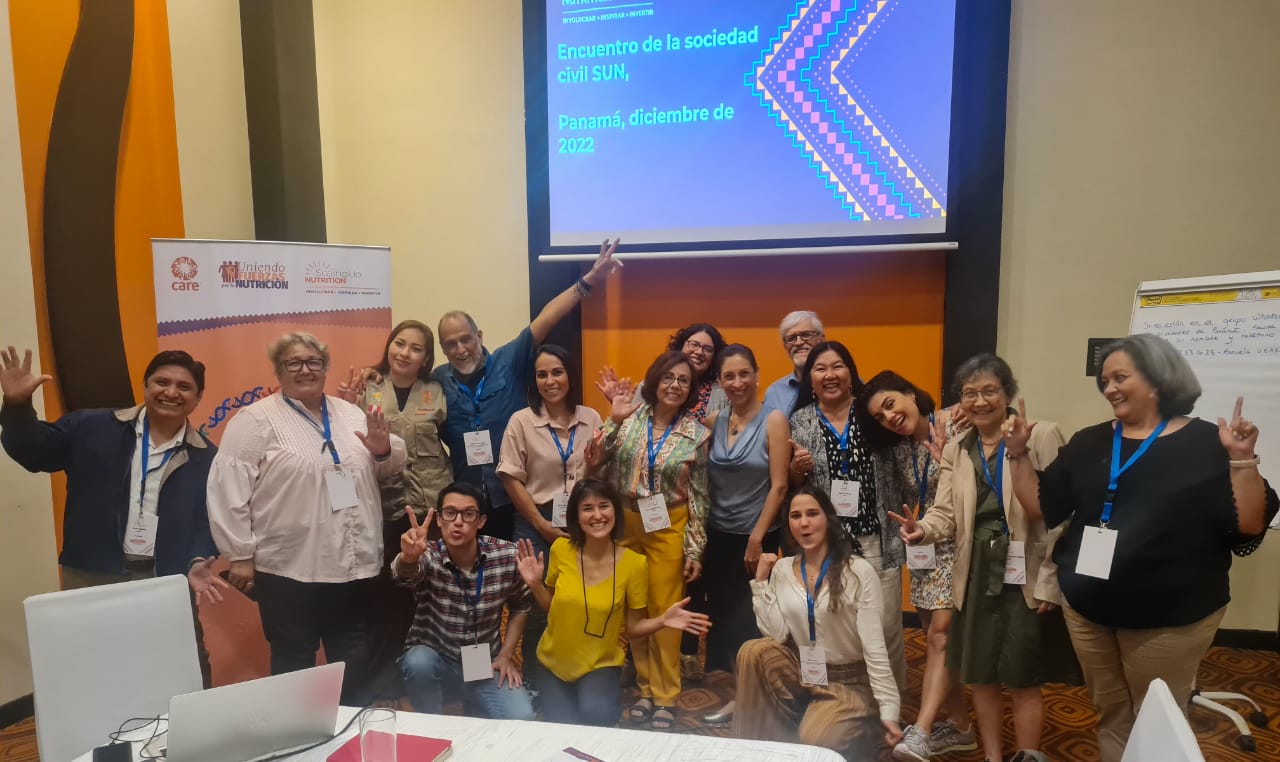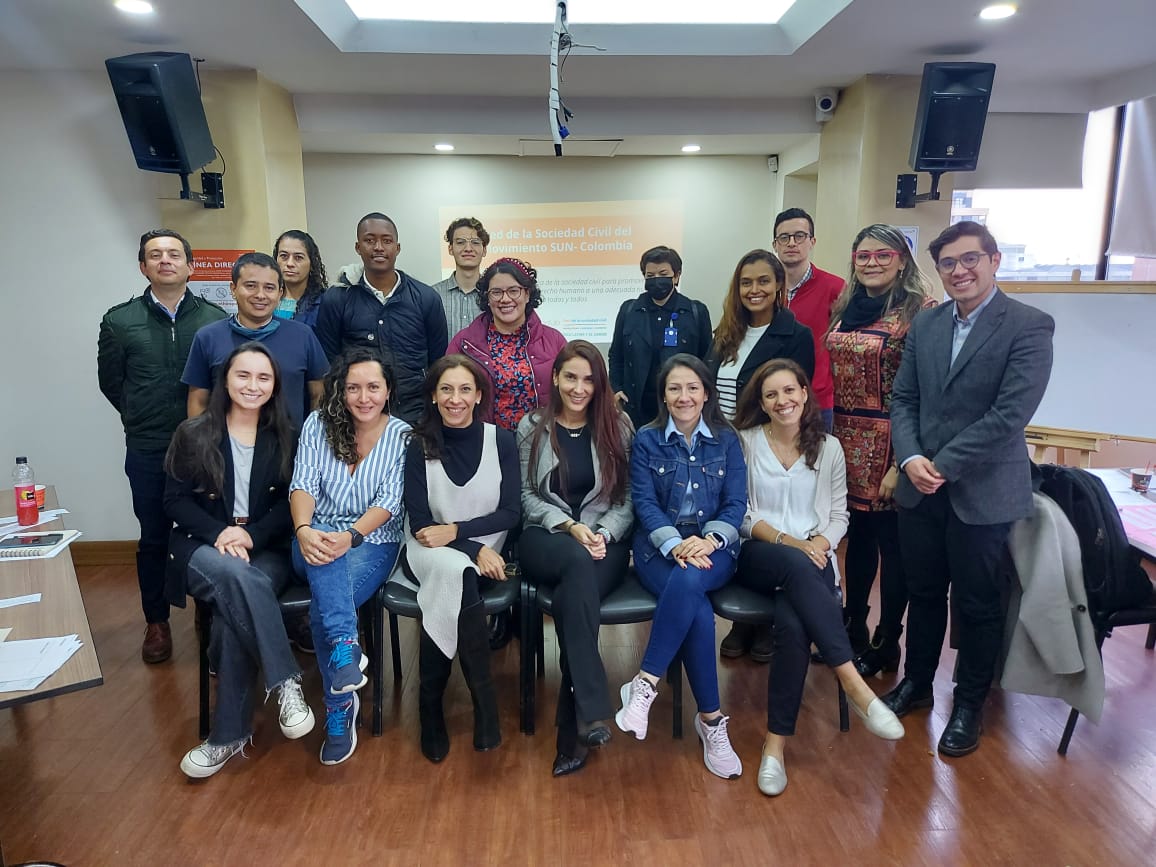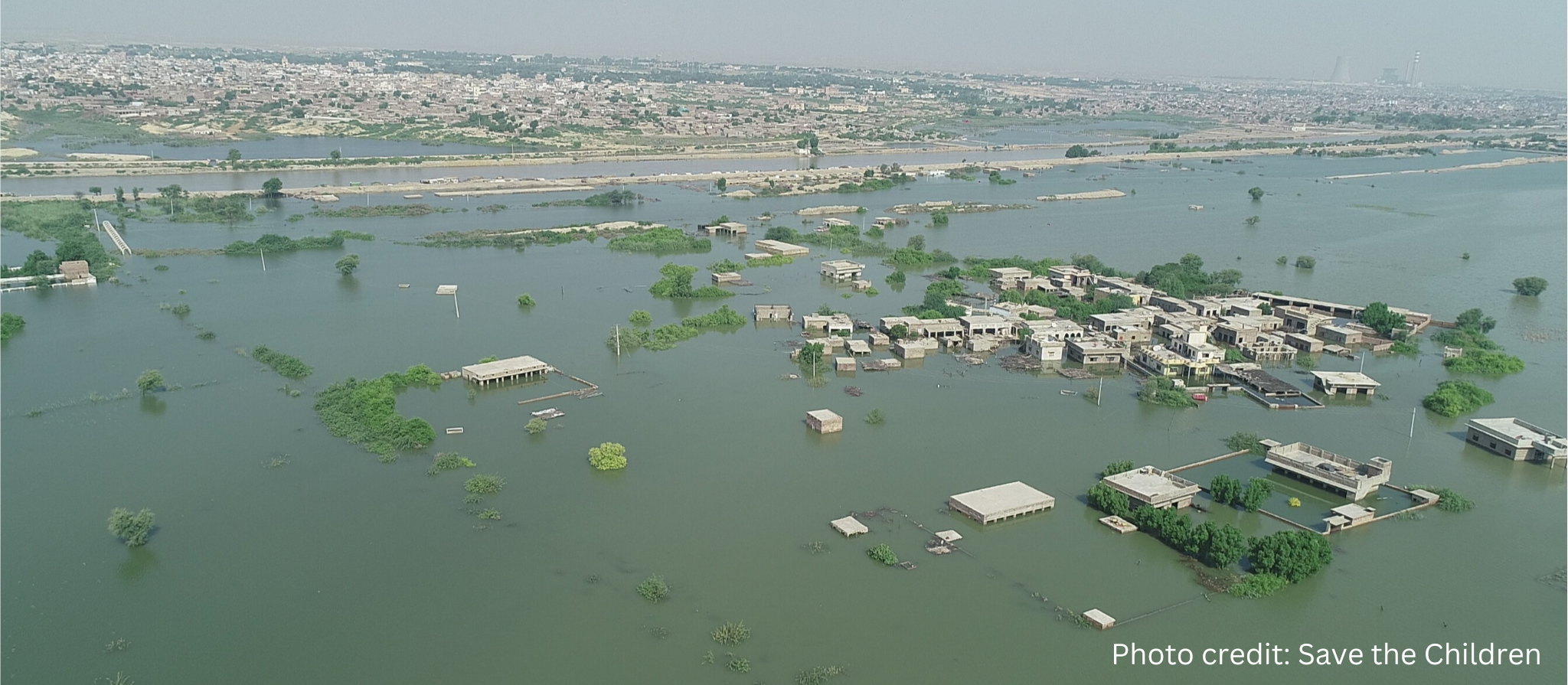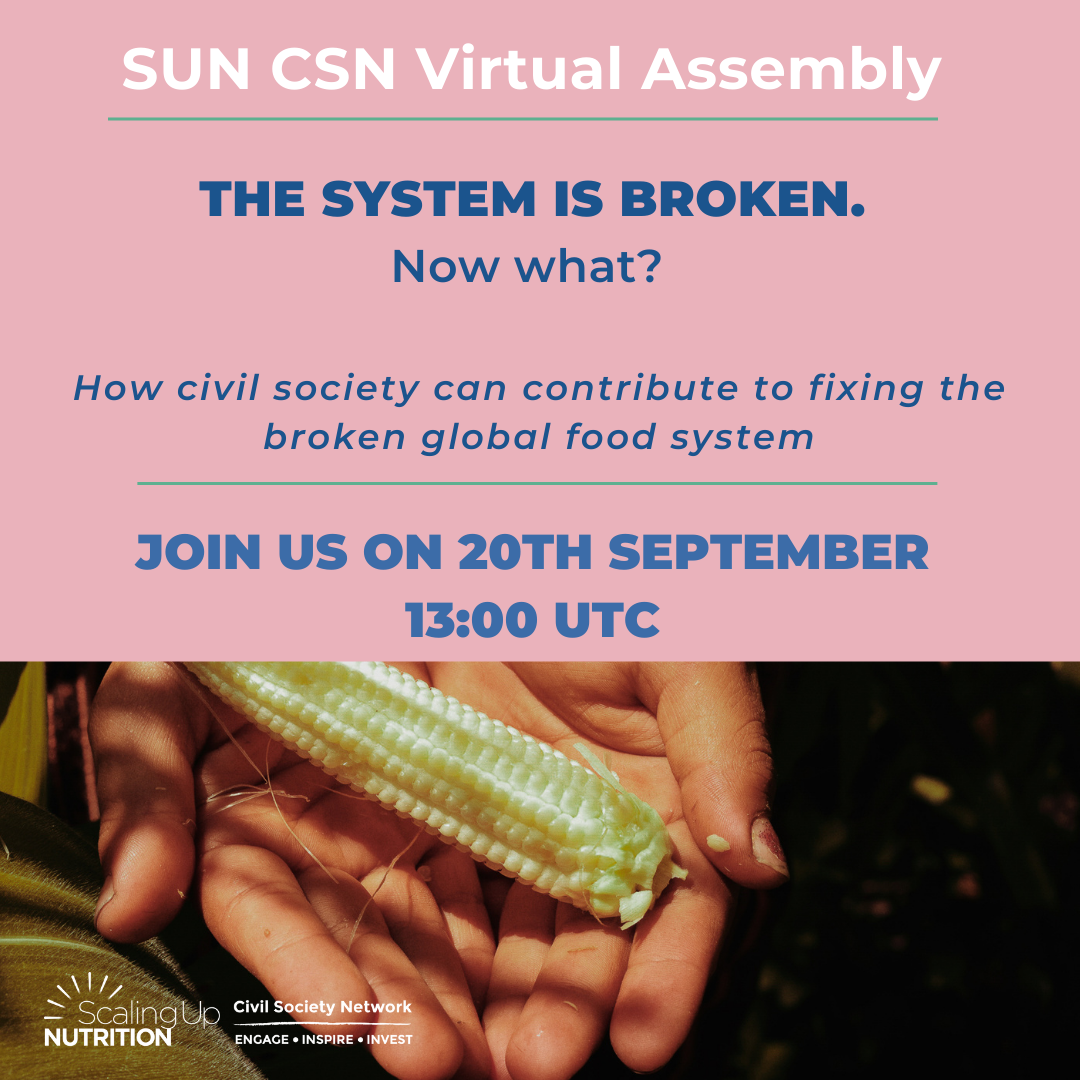Lagos, Nigeria – June 14, 2025 Civil society leaders from 22 countries across West, Central Africa and the Islands (Comoros and Madagascar) (WCAI) came together last week in Lagos, Nigeria for the SUN Civil Society Network’s annual regional meeting — a week of dialogue, learning, and bold action toward nutrition justice. Under the theme “A […]
LeerTodas las noticias sobre Sin categorizar
Seleccione los temas que le interesan para filtrar los artículos de prensa.
Civil Societies launch a common declaration at Nutrition for Growth Summit (N4G) in Paris 2025
In the margins of the N4G Summit, civil society organisations from across the world gathered for two days in the Civil Society Pavilion to confront pressing challenges in the nutrition landscape and shape a path forward. From these discussions, civil society united behind a set of key recommendations, with over a hundred organisations supporting this […]
LeerCuenta regresiva para la N4G: ¡es hora de movilizar a los tomadores de decisiones!
La próxima Cumbre de Nutrición para el Crecimiento (N4G) 2025 en París representa un momento crucial para que los miembros de la Red de la Sociedad Civil SUN (RSC SUN) den forma a la agenda mundial de nutrición. Los gobiernos, los donantes y las partes interesadas se reunirán para asumir compromisos que podrían transformar la […]
LeerNourishing equality: Partners recommit to uniting for gender equality and nutrition
Incorporating gender considerations not only improves the heath and well- being of women and adolescent girls but also strengthens entire communities leading to lasting change. Check out this call for action initiative on gender and nutrition here
LeerEncuentro regional en América latina y el Caribe del Movimiento SUN: Reflexiones de la sociedad civil
15 de diciembre de 2022 En nombre de una líder de jóvenes del Perú y de las 7 alianzas de la sociedad civil SUN (Colombia, Costa Rica, Ecuador, El Salvador, Guatemala, Honduras, Perú) aquí presentes, queremos destacar 5 puntos de reflexión al cerrar este encuentro regional: Vean aquí más información sobre cómo unirse a la […]
LeerEncuentro regional en América latina y el Caribe del Movimiento SUN
Reflexiones de la sociedad civil En nombre de una líder de jóvenes del Perú y de las 7 alianzas de la sociedad civil SUN (Colombia, Costa Rica, Ecuador, El Salvador, Guatemala, Honduras, Perú) aquí presentes, queremos destacar 5 puntos de reflexión al cerrar este encuentro regional: Vean más información sobre cómo unirse a la campaña […]
LeerColombia tiene su primera reunión oficial
El 29 de septiembre en la ciudad de Bogotá, se llevó a cabo el primer encuentro oficial de la Red de sociedad civil SUN de Colombia. Representantes de 15 Fundaciones y ONGs colombianas se reunieron para debatir cuál será su plan de acción a seguir durante este y el próximo año y cuáles los objetivos […]
LeerFlooding in Pakistan: Take Action
Extreme flooding in Pakistan has led to over 1500 deaths and left over one third of the country under water. As citizens struggle to find shelter, health conditions and nutrition and food security are worsening. Many of our Civil Society Network member organisations are on the ground delivering life saving support as is our national […]
LeerParticipa en la última asamblea de la Red SC
Nuestra primera Asamblea Virtual de la red se celebró en mayo con el telón de fondo de las actuales crisis mundiales, que han visto aumentar los precios de los alimentos y disminuir aún más el acceso a una nutrición adecuada. Juntos, los miembros de la RSC debatieron cómo se han visto afectadas las comunidades y […]
Leer¡Un nuevo capítulo para el liderazgo de los jóvenes en materia de nutrición para el SUN RSC!
Este año, el Secretariado de la RSC de SUN está muy entusiasmado con el lanzamiento de la siguiente fase del exitoso Programa de Líderes Jóvenes por la Nutrición, e invitamos a todos los miembros de la RSC a unirse a nosotros para reclutar a la próxima generación de jóvenes agentes de cambio en materia de […]
LeerEnviar artículos de prensa
Si es usted parte de la Red de la Sociedad Civil SUN y desea compartir un artículo de prensa, envíelo completando el formulario de contacto y seleccione la opción «Enviar un artículo de prensa» en «Motivo por el que nos contacta» para que podamos revisarlo y publicarlo.
Este año, el Secretariado de la RSC de SUN está muy entusiasmado con el lanzamiento de la siguiente fase del exitoso Programa de Líderes Jóvenes por la Nutrición, e invitamos a todos los miembros de la RSC a unirse a nosotros para reclutar a la próxima generación de jóvenes agentes de cambio en materia de nutrición.
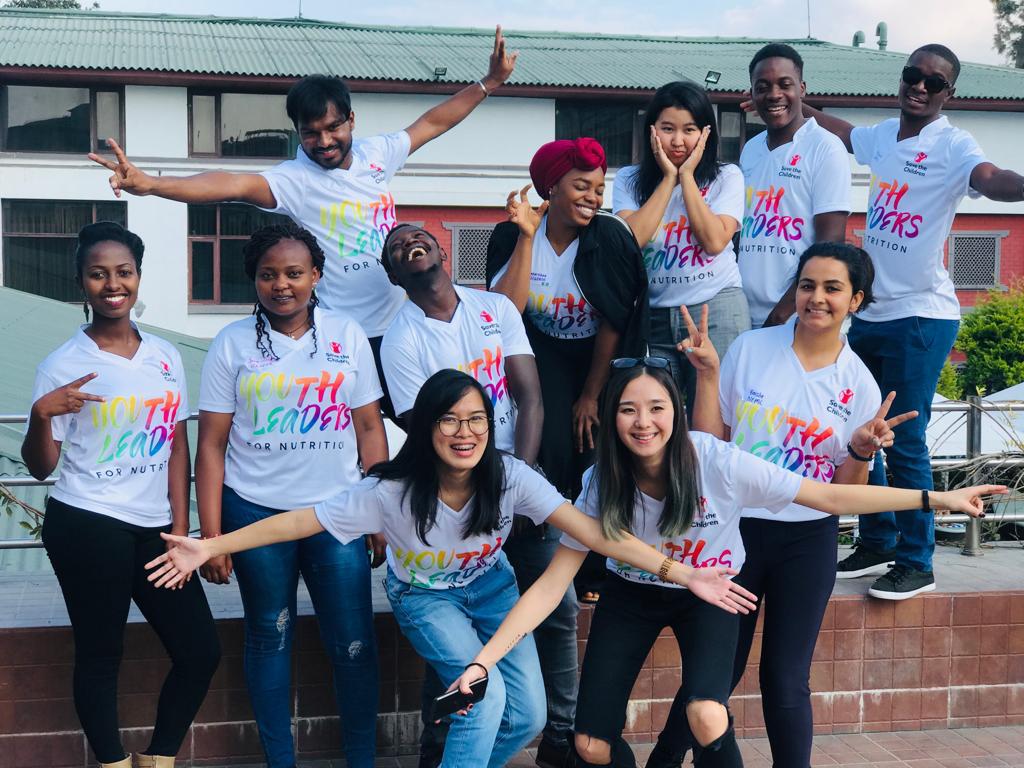
What does this new phase look like?
Anteriormente, la RSC de SUN ha apoyado a 13 brillantes líderes juveniles para que se conviertan en defensores pioneros de la nutrición. Este enfoque tuvo un enorme impacto en estos líderes juveniles y les permitió influir en los responsables de la toma de decisiones al más alto nivel.
Sin embargo, esto significaba que nuestro alcance se limitaba a un puñado de personas y no siempre incluíamos o empoderábamos a los jóvenes más marginados en nuestra defensa.
De cara al futuro, la RSC de SUN ha acordado ir más allá del trabajo con jóvenes individuales, para trabajar con redes nacionales de activistas juveniles en toda la RSC.
Para que este modelo funcione, los líderes juveniles se convertirán en «coordinadores juveniles nacionales», cuya principal responsabilidad será adoptar un enfoque de organización comunitaria para crear redes nacionales de activistas juveniles, dando prioridad al reclutamiento de activistas de base procedentes de comunidades marginadas e infrarrepresentadas.
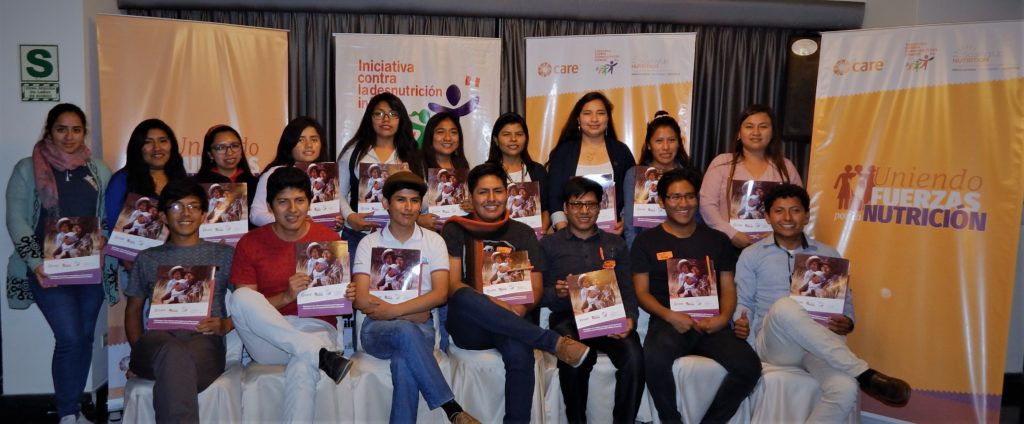
¿Cuáles son las ventajas de este nuevo enfoque?
- Comunidades fuertes – si se apoya a los jóvenes para que reúnan a la gente en su localidad y eduquen e informen a los demás sobre su derecho a una nutrición adecuada, las comunidades serán más fuertes y estarán en mejores condiciones de ejercer su poder colectivo para influir en los responsables de la toma de decisiones para que se cumplan sus demandas
- El poder colectivo a nivel nacional – Cuando los jóvenes se comprometen individualmente con los responsables de la toma de decisiones puede ser impactante, pero a menudo pueden ser ignorados o descartados después de la interacción. Con los movimientos de jóvenes que se extienden por la RSC, será imposible ignorar a los jóvenes cuando se trate de la nutrición.
- Dar prioridad a las voces más marginadas – Como se indica en el Objetivo Estratégico 1 de la Estrategia 3.0 de la RSC, nos comprometemos a garantizar que las voces más marginadas e infrarrepresentadas se incluyan en la defensa de la nutrición de la RSC. Al dar prioridad a las voces subrepresentadas en nuestra contratación de nuevos Coordinadores Nacionales de Juventud, comenzaremos a diversificar nuestra cohorte de jóvenes. Pero queremos ir más allá adoptando un enfoque de organización comunitaria para llegar a los niños y jóvenes más marginados a nivel comunitario y capacitarlos para que se unan a nosotros como activistas juveniles.
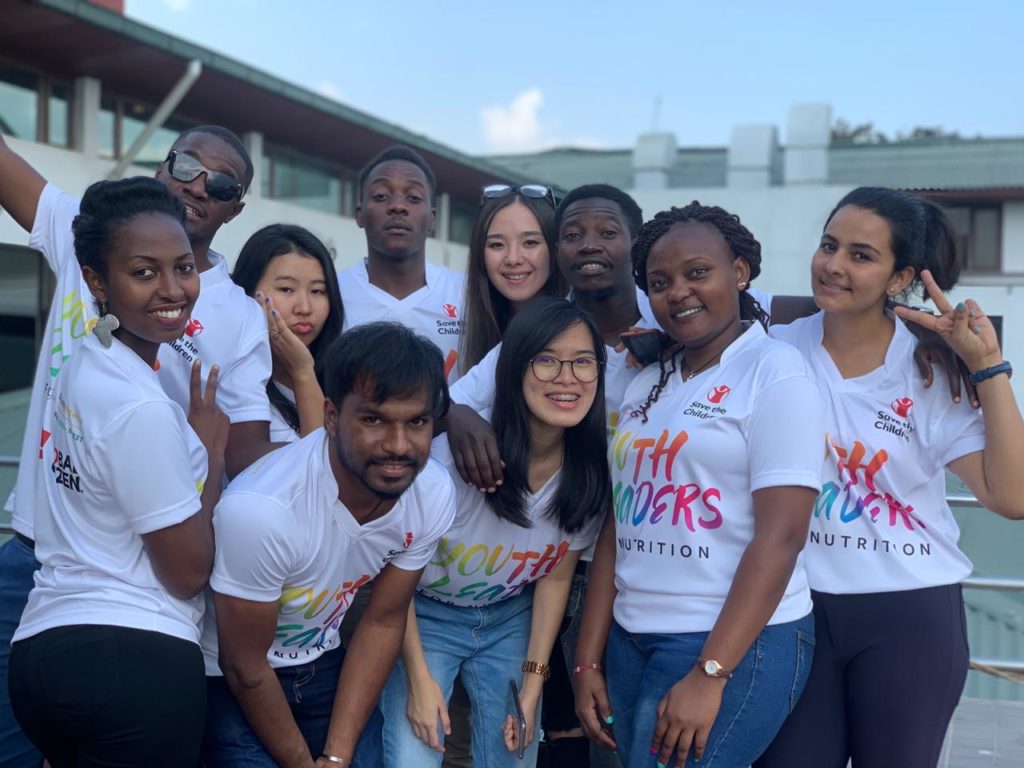
¿Qué papel desempeñarán los ASC?
Los ASC desempeñarán un papel crucial a la hora de apoyar y posibilitar un liderazgo juvenil significativo en materia de nutrición. Algunos ASC ya han comenzado a realizar actividades de participación de los jóvenes de las que todos podemos aprender y aplicar a la siguiente fase de este programa. Como RSC, deberíamos esforzarnos por apoyar redes autodeterminadas de jóvenes que estén capacitados para identificar sus propias prioridades y defender los cambios en la política de nutrición que consideren más importantes, de la manera que consideren más impactante.
Los coordinadores nacionales de la juventud, y las redes de activistas juveniles que están construyendo, formarían parte de su ASC, y deberían ser considerados como partes interesadas en igualdad de condiciones dentro de cada alianza, cuyas opiniones e ideas ayudarán a fortalecer su defensa de la nutrición.
Se espera que los ASC actúen como aliados de los jóvenes y como defensores de un liderazgo juvenil significativo en materia de nutrición. Las actividades para los ASC podrían incluir:
- Mostrar y celebrar el poder de estas redes de jóvenes en los propios canales de comunicación de los ASC
- Abrir puertas y crear oportunidades para que los jóvenes activistas se representen a sí mismos en eventos de promoción de alto nivel
- Intercambio de conocimientos y experiencia en materia de política y promoción de la nutrición
- Apoyar a las redes juveniles para que identifiquen y soliciten oportunidades de recaudación de fondos dirigidas a los jóvenes
La Secretaría de la RSC está solicitando activamente financiación para garantizar que los CSA reciban el apoyo adecuado para llevar a cabo estas actividades. El importe exacto de la financiación disponible aún no está confirmado, pero se comunicará a los miembros del RSC lo antes posible. Dadas las restricciones de financiación, el número de Coordinadores Nacionales de Juventud que podremos seleccionar será limitado y se determinará en función del volumen y la calidad de las solicitudes que recibamos. Esto significa que es posible que no podamos contratar a un Coordinador Nacional de Juventud en todos los países en los que haya un CSA interesado en trabajar con uno.
¿Qué pasa ahora?
En las próximas semanas comenzaremos a reclutar abiertamente Coordinadores Nacionales de Juventud de toda la RSC.
He aquí un resumen del proceso de contratación previsto:
- Se invitará a los jóvenes a presentar una breve solicitud detallando su idoneidad para el puesto
- Las revisaremos a medida que vayan llegando y las seleccionaremos para las entrevistas
- Se invitará a los representantes del CSA a formar parte de los paneles de entrevistas para jóvenes en sus respectivos países
- La Secretaría de la RSC, las organizaciones asociadas y los representantes del ASC decidirán la selección final de los Coordinadores Nacionales de la Juventud para poner en marcha la siguiente fase del programa.
Cómo participar
¿Eres un joven apasionado por acabar con la desnutrición?
¿Estás preparado para crear un movimiento de agentes de cambio en tu país?
Rellene este breve formulario para registrar su interés en esta emocionante oportunidad

